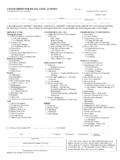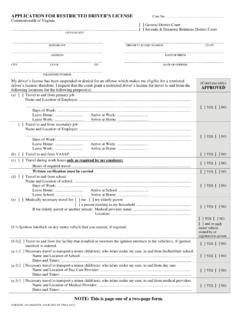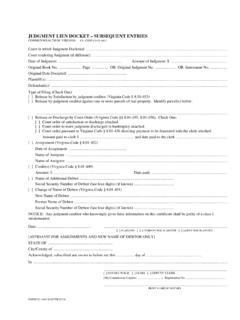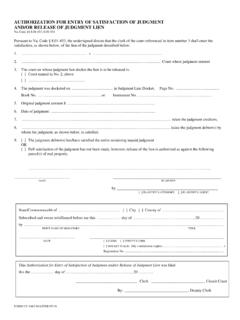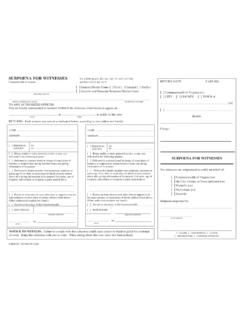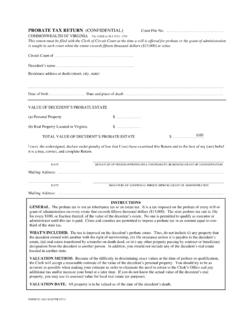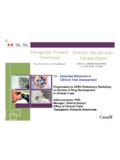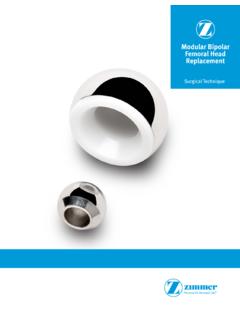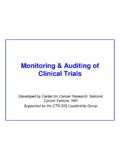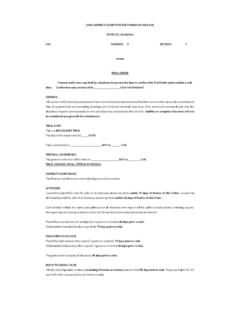Transcription of General District Manual - Chapter 4 - Judiciary of …
1 General District COURT Manual Chapter 4 Page 1 Office of the Executive Secretary Department of Judicial Services Rev: 7/18 Chapter 4 TRAFFIC CASE PROCEDURES Introduction In Virginia, most traffic offenses are classified as traffic infractions rather than as criminal offenses because of the relatively minor nature of most traffic violations. This classification simplifies processing minor offenses and allows the court to focus on the more serious traffic offenses. Many traffic infractions can be prepaid. For those cases, the court appearance can be waived; that is, the defendant may choose to pay his fine and court costs in person or by mail prior to the court date and does not need to appear in court. For more serious traffic offenses, the court appearance may not be waived and prepayment of a fine is not an option. This section of the Manual presents a narrative description of the basic traffic case process.
2 The sections following the narrative description present, in more detail, the major steps in processing a traffic case such as case initiation, pre-trial procedures, court processing, disposition, case closure, and disposition reporting. Because many of the provisions of Virginia criminal procedure apply to traffic cases as well as other cases, only those provisions unique to traffic cases are contained here. See Criminal Case Procedures in this Manual for criminal procedures applicable to traffic cases. Narrative Description The traffic case process is initiated when an officer cites a motorist for a traffic violation. For traffic infractions or misdemeanors, the officer will either issue a summons or, if the officer believes the defendant will not appear for trial or if the defendant is arrested for a serious offense, he will take the defendant before a magistrate to obtain an arrest warrant and for bail.
3 If the officer seeks a warrant, the magistrate conducts a probable cause hearing and, if probable cause is found, issues a warrant or summons. If a summons is issued, the defendant is released on his written promise to appear. If a warrant is issued, the defendant can be released on personal recognizance, or is admitted to bail and required to post a bond (secured or unsecured), a cash deposit in lieu of bond with surety, or a guaranteed arrest bond certificate in order to assure his appearance in court; otherwise, he is committed to jail. The court appearance date is usually determined simply by the officer s next scheduled court day. After these initial case actions have been completed, the summons or warrant is forwarded to the appropriate District court clerk s office for case processing. A clerk assigns a case number, indexes the case, and files the case papers by court date.
4 General District COURT Manual Chapter 4 Page 2 Office of the Executive Secretary Department of Judicial Services Rev: 7/18 For prepayable traffic infractions, the defendant may choose to waive trial, enter a guilty plea and pay the fine and court costs prior to his scheduled court date. See General District Court Manual , Fees and Prepayments . To waive the court appearance and prepay the fine, the defendant may prepay over the Internet, call the clerk or appear in person in the clerk s office or before a magistrate and request information on the amount of fines and costs to be paid. The clerk or magistrate verifies that the offense allows waiver of court appearance and determines the appropriate fines and costs. The defendant, if present, signs a waiver of court appearance and guilty plea and pays the fines and costs. The clerk or magistrate collects the fines and costs and issues a receipt.
5 If the transaction is handled by mail, the defendant must send the appropriate amount for fines and costs; adult defendants also should include a properly executed waiver of court appearance and guilty plea. Prior to a court date, the clerk retrieves all of the cases from the file for that court date and prepares the docket. Prepaid cases are entered on the docket with the disposition and fines and costs paid. On the trial day, the case files and the docket are sent to court. In court, all court actions are recorded in CMS and on the summons or warrant. Those defendants charged with traffic infractions that do not prepay and who fail to appear for court are tried in their absence and a notice of the verdict and the fine and costs imposed is sent to their residence. Those charged with traffic misdemeanors may be tried in their absence at the judge s discretion and the notice is sent to them as above; if there is no trial in absentia, a failure to appear warrant, bench warrant, or rule to show cause may be issued.
6 These may also be issued when the defendant is tried in absentia. The obligation for payment of fines and costs to the court accrues upon conviction and is normally due within thirty days of trial, but deferred or the court shall establish installment payment agreements for those unable to make immediate payment. Each District court must accept payment by personal checks, credit cards, debit cards, cash, money orders, or cashier s checks. If a defendant who has posted bond for a prepayable traffic infraction later pays the fine and costs with cash, certified check or money order before trial, the bond is returned; if paid by personal check, the bond is held until trial or until the check clears, whichever occurs first. The defendant is allowed ten days from the conviction date in which to file an appeal to the circuit court. Upon appeal, the clerk refunds any fines or costs paid to the court, requires the defendant to post bail as set by the court, if any, and transfers the case papers to the circuit court.
7 The case papers may not be transferred to circuit court until the expiration of the ten-day appeal period. If there is no appeal, the record of conviction is transmitted electronically to the Department of Motor Vehicles. General District COURT Manual Chapter 4 Page 3 Office of the Executive Secretary Department of Judicial Services Rev: 7/18 At the end of the month, data concerning the types of cases and dispositions are compiled and a caseload report of monthly court statistics is electronically transmitted to the Office of the Executive Secretary. General District COURT Manual Chapter 4 Page 4 Office of the Executive Secretary Department of Judicial Services Rev: 7/17 Traffic Case Process Flow Chart General District COURT Manual Chapter 4 Page 5 Office of the Executive Secretary Department of Judicial Services Rev: 7/18 Pre-Trial Processing A.
8 General Provisions Upon receipt of the summons or warrant from the officer or magistrate, the clerk in the traffic court must perform several functions prior to the court date to prepare the case for court. To complete the case indexing and filing functions, the clerk s office will: o Assign a sequential case number and enter the number and the court date on the summons or warrant (court date usually determined by the arresting officer s next scheduled court date). o Enter case in the automated system. o File the case by court date prior to the court date. Staple to the case papers any driver s license seized by the arresting officer and surrendered to the court pursuant to Va. Code o Issue DC-326, SUBPOENA FOR WITNESSES in cases where an accident occurred and the defendant has returned the DC-217, VIRGINIA PREPAYMENT INFORMATION SHEET, informing the court of his or her intent to plead not guilty.
9 O Include witness subpoena returns of service, if any, See, , Va. Code The clerk s office will normally prepare the docket as follows: o Retrieve all cases from the files for a given court date. o Arrange the cases in the order preferred by the court, , by arresting officer, by case number or alphabetically by defendant s name. o Print docket via CMS. o Add additional cases to the docket as they come to the clerk s office. o Distribute and post copies of the docket. B. Prepayable Offenses That Involve an Accident In order to avoid inconveniencing those who will be subpoenaed as witnesses to an accident, it is important to determine, if possible, prior to the date set for hearing the offense whether the person charged intends to plead not guilty thereby requiring the presence of witnesses for a trial. To further this goal, the following procedures are General District COURT Manual Chapter 4 Page 6 Office of the Executive Secretary Department of Judicial Services Rev: 7/18 recommended for use when a District court processes prepayable violations that result in accidents.
10 O Local law enforcement and state police should give any driver involved in an accident, where a summons is being issued for prepayable offenses, a copy of the DC-217, VIRGINIA PREPAYABLE OFFENSES INFORMATION SHEET that includes a check box for the defendant to indicate that he or she intends to plead guilty. o If there are witnesses to the accident, the law enforcement officers should complete but not issue, a DC-326, SUBPOENA FOR WITNESSES in triplicate for each witness leaving the court date and signature line blank. The officer should retain one copy of the partially completed subpoenas and attach the original and one copy to the court s copy of the defendant s Virginia Uniform Summons. The court should encourage law enforcement officers to consider their evidence and only utilize DC-326, SUBPOENA FOR WITNESSES in those cases where witnesses are essential to the case.
